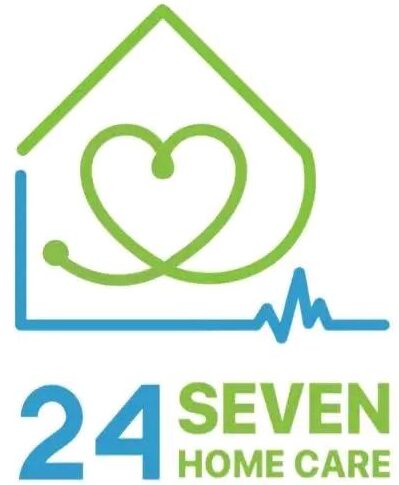Vitamin B12: Important Health Benefits You Should Know About
Table of Contents
Vitamin B12 is crucial for maintaining the health of both your neurological system and red blood cells. It can be found numerous fortified foods as well as a range of-derived products. Data indicates that around 6% of Americans younger than 60 and 20% of those aged 60 and above are deficient in this vitamin. A lack of sufficient vitamin B12 can lead to anemia and significant neurological issues.
You can increase your intake of this essential nutrient by consuming more animal products and fortified foods that contain vitamin B12. In some cases, healthcare providers might suggest the use of injections or oral supplements to boost the levels of this vitamin in your system.
For additional information on the benefits provided by vitamin B12 and more detailed insights, explore further resources on this topic.
Why is vitamin B12 necessary?
While the human body is incapable of producing vitamin B12 on its own, this nutrient remains essential for health. It can be found naturally in several animal-derived products. Vitamin B12 plays a crucial role in many of the body functions, which include:
Maintaining mental function, regulating and manufacturing DNA, producing energy, and keeping the brain and nervous system healthy are essential tasks carried out by your body. The liver stores extra vitamin B12 for times when your intake might decrease. However, if these reserves are exhausted, it could lead to serious health issues.
What occurs if you have low vitamin B12 levels?
Low amounts of vitamin B12 might result in symptoms like the following:
1. Numbness in the extremities, particularly the hands and feet.
2. Challenges in mobility, confusion, and inability to recall information.
3. Feelings of sadness coupled with restlessness.
4. Complications in recognizing flavors, scents, or visual details.
5. Intense heartbeats.
6. Persistent headaches that lead to extreme fatigue.
7. Unusual lightening of the skin tone accompanied by weight reduction.
8. A tender, smooth, and inflamed tongue condition referred to as glossitis.
To prevent anemia, it is necessary to address deficiencies in vitamin B12. Megaloblastic anemia, a condition associated with insufficient vitamin B12, causes red blood cells to enlarge and adopt an abnormal, oval shape. This abnormality in shape can hinder the red blood cells’ ability to move from the bone marrow into the bloodstream efficiently. Therefore, maintaining adequate levels of vitamin B12 is essential for the normal production and function of red blood cells.
Is it beneficial for you to take B12 daily?
The typically recommended intake of vitamin B12 for most adults is 2.4 micrograms (mcg) according to reliable sources. Pregnant women or those who are breastfeeding should increase intake slightly to 2.6 mcg daily. Infants under six months old need only 0.4 mcg per day. Being water-soluble, any surplus vitamin B12 is expelled through urine after being stored in the body for two to five years.
While many diets naturally contain sufficient B12, those who follow a vegan or vegetarian lifestyle might need to include B12-fortified foods in their meals to compensate for the absence of this vitamin in plant sources, as noted by trusted sources. The absorption of Vitamin B12 typically occurs in your body through a two-stage process.
Initially, vitamin B12 is released from its bound protein by the action of stomach acid. Subsequently, within the ileum, which is the final portion of your small intestine, B12 combines with a protein called the intrinsic factor, also produced in your. This complex is absorbed into the bloodstream. If you opt for vitamin B12 supplements, your body might bypass the initial release step. This suggests that injections could potentially be more advantageous.
Should you have a deficiency in vitamin B12, a healthcare professional might recommend supplementation through injections. These injections, commonly referred to as hydroxocobalamin in the United States, might be necessary every alternate day for a fortnight, or until there’s an improvement in your symptoms, particularly if your anemia is linked to low levels of vitamin B12.
Situations where diet alterations and oral supplements fail to remedy B12 deficiencies, particularly those due to underlying health issues, doctors generally advocate for these injections to effectively manage the deficiency.
Which sources of vitamin B12 are the best?
A variety of foods contain B12, also known as ascorbic acid. These include seafood options like oysters, clams, and salmon; other great sources are lean cuts of beef and poultry. Additionally, many breakfast cereals are fortified with essential nutrients, including vitamin B12. Dairy products, such as yogurt, cheese, and milk, are also excellent sources of this vitamin.
Exist any potential negative consequences from vitamin B12?
Vitamin B12, even in high doses, is generally not considered harmful, according to reliable sources. Nonetheless, there are potential negative side effects associated with B12, such as swelling, pain, and redness at the site of the shot. Other possible reactions include nausea, vomiting, dizziness, and headaches. It essential to communicate with your healthcare provider immediately if you experience any serious side effects following a B12 injection, like heart palpitations.
Does taking vitamin B12 impact how you eat?
Insufficient vitamin B12 levels can lead to digestive such as constipation and diarrhea. Additionally, a deficiency in vitamin B12 may impact the efficiency with which your red blood cells transport oxygen to your digestive tract. This insufficiency can cause symptoms including gas, bloating, vomiting, and nausea.
Does taking vitamin B12 impact how you eat?
Vitamin B12 is essential for the proper functioning of your body’s neurological system and cells. A deficiency in this vitamin can lead to symptoms such as exhaustion, a tingling sensation in the extremities, and cognitive impairments.
Eating meals enriched with nutrients and various animal-derived products can boost your levels of vitamin B12. Should your levels of vitamin be insufficient, a healthcare professional might recommend either injection therapy or oral supplementation.

